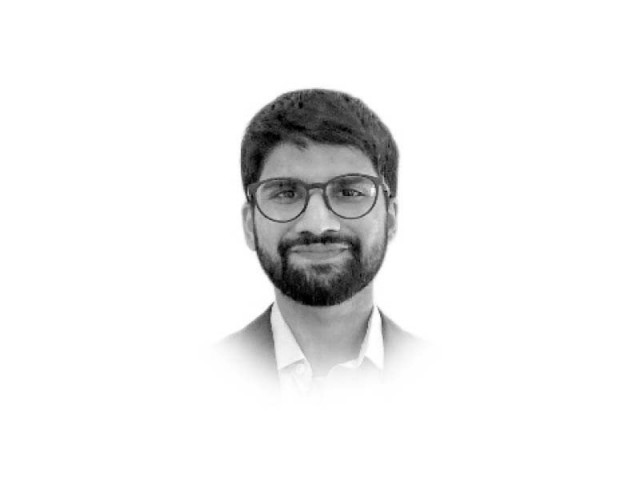Smog: die or change?
We must exert radical pressure on ourselves and those who have been granted political power

Intelligent denizens of our society pen highly instructive manuals on the perils that await us if our smog crisis is not mitigated. Yet, whatever action is taken on the ground is simply not enough. Regardless of partisan affiliation, parliamentarians remain incompetent, arrogant and languid, while bureaucratic systems exude ineffectiveness. We all know this all too well; this is all we have ever known. Yet, our children cannot breathe, our elders cannot breathe, and the labourer has no choice but to breathe. We cannot walk our streets. Where would we walk? Where are the footpaths? Even if we miraculously had some, would women and children be able to walk them without fear? Could one walk them without the constant anxiety of being trampled over by an inept driver whose licence may have been graciously home delivered?
In 1952, The Great Smog of London killed thousands of people. Accountability was demanded. Over the next few decades, what followed was a series of legislative acts aimed to curb future environmental calamities. At the time of writing this, Lahore’s AQI stands at 423 versus London’s 12. Can we follow suit and change? Unless things change dramatically, our situation will continue degenerating. We cannot remain impervious to South Asia’s unfailingly depreciating environmental landscape. We cannot bear the burden of demonic consumption patterns anymore. Demanding environmental justice, which should have been an elementary stepping-stone, remains elusive locally and globally.
No amount of privilege or wealth will be able to safeguard the lungs of those who find themselves in residence here. If threatening the prosperity of people with means to influence policy is the only way of shaking sense into them, so be it. Instead of tacky billboards excreting digital hallucinations, what if we were to cast projections showing how people in other countries, some of which extracted great wealth from lands like ours, now live? What if we could see their parks, public squares and transport systems? What if we could see the carefree smiles of their citizens roaming their relatively human friendly cities? Would that shame us into action, or would we find refuge in our more fatalistic tendencies?
Our Eastern border also represents a scar etched into our minds, carved first by the colonial state and later by our local overlords. Many detest what lies across this line, as do many on the other side. Yet, we hold surprisingly little animosity for where that line came from. Regardless of borders, our entire region stands threatened. To play politics is not mere foolishness, it is morally disgraceful. The impact of our collective failures will not distinguish between Lahore and Delhi. Those with the ability to migrate often do not squander any opportunity to do so. Can one blame them? While some may be relieved to depart this pure land, others who leave develop a split in their being. Their psyche is fractured in this bittersweet exile. As they make home in new places, the traces of their origins cast a persistent shadow.
Anger is hardly useful. Yet, if our anesthetic apathy does not transmute into a righteous rage, what hope remains? Many in the echelons of power simply have no shame and those who may, find themselves entrapped within board rooms failing to initiate meaningful change. Many of us do not care or know which department is responsible for what or where the jurisdiction of one begins or ends. Perhaps, this ignorance represents a conscious depoliticisation of the citizenry. In any case, barring the public from accessing corridors of power does ensure minimal criticism. Yet, there is a real arrogance in believing that replacing one kind of incompetent ruler with another closer to our social and political sensibilities will alleviate our problems. In a metaphysical sense, many of our problems are here to stay and divine justice may never be meted out in this realm. Yet, how much can people take? We must distinguish the ibtilat, the inevitable trials concomitant with the human condition, from the unnecessary suffering we continue to facilitate.
This is not only about the environment; even a cursory non-expert glance at development indicators, in conjunction with any degree of interaction with society, will impress upon one the factualness of a depreciating common morale. Should we panic? Yes, but about the right things. We must do all that lies within the grasp of our individual capacity. We must exert radical pressure on ourselves and those who have been granted political power. To levy the blame on structural constraints is an attractive alternative, but it is no longer ethically tenable. Yet, this is neither a technical analysis nor a policy proposal; that I leave to policy experts. My argument is much simpler: We must change, or we must die.
Published in The Express Tribune, November 9th, 2021.
Like Opinion & Editorial on Facebook, follow @ETOpEd on Twitter to receive all updates on all our daily pieces.

















COMMENTS
Comments are moderated and generally will be posted if they are on-topic and not abusive.
For more information, please see our Comments FAQ